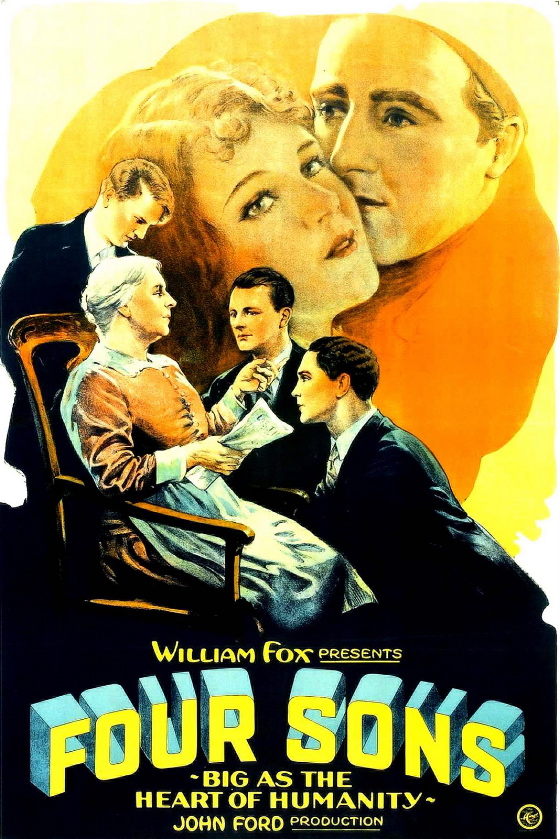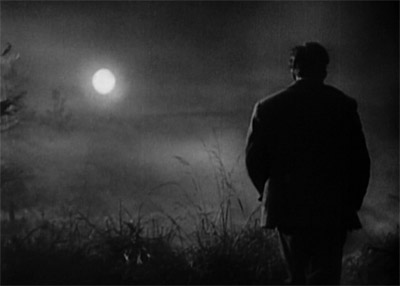
Four Sons,
from 1928, is one of the greatest works of German expressionist cinema
— even though it was made by the Irish-American John Ford in
Hollywood, U. S. A. Ford doesn't just seem to be working under
the influence of Murnau here — he seems to be channeling Murnau.
If the film had somehow been misattributed to Murnau, it would be very
difficult to correct the mistake by means of a stylistic
analysis. Ford even, at one point, seems to be following in
Murnau's missteps — Four Sons, like The Last Laugh,
has an odd extended epilogue which violates the tone of the rest of the
film but somehow seems to work in spite of that, lightening the mood
in a strange, surreal way without diminishing the power of the work as a whole.
In Four Sons Ford moves his
camera as elegantly and expressively as any director ever has — and
the plastic invention involved is ravishing. The lighting is
typical of Murnau, employing soft, glowing, complex chiaroscuro
effects as opposed to the stark contrast of light and shadow often
associated with expressionist cinema (and which Ford himself came
to favor in his later “expressionist” films, from The Informer to The Fugitive.)

Ford had two great masters in his formative years, first Griffith and
then Murnau. What's astonishing is how totally he was able to
absorb each man's style — he didn't seem to be imitating it so much as
working within it naturally and unselfconsciously. Maybe even
more astonishing is that Ford absorbed Murnau so quickly. We know
how powerfully Sunrise
affected him — just from viewing the rushes he declared it the
greatest film ever made. Less than a year later he was working
with full confidence and mastery in the Murnau style — and even shot
parts of Four Sons on sets from Sunrise that were still standing.
Apart from its lack of a strong female lead, Ford's Just Pals
could have been directed by Griffith and would rank among Griffith's more
enjoyable minor films. The epic visual poetry of Ford's The Iron Horse bears favorable comparison with the epic visual poetry of The Birth Of A Nation — which is saying a lot. If Four Sons had been directed by Murnau, it would rank among the German director's most important works — and that may be saying even more.
